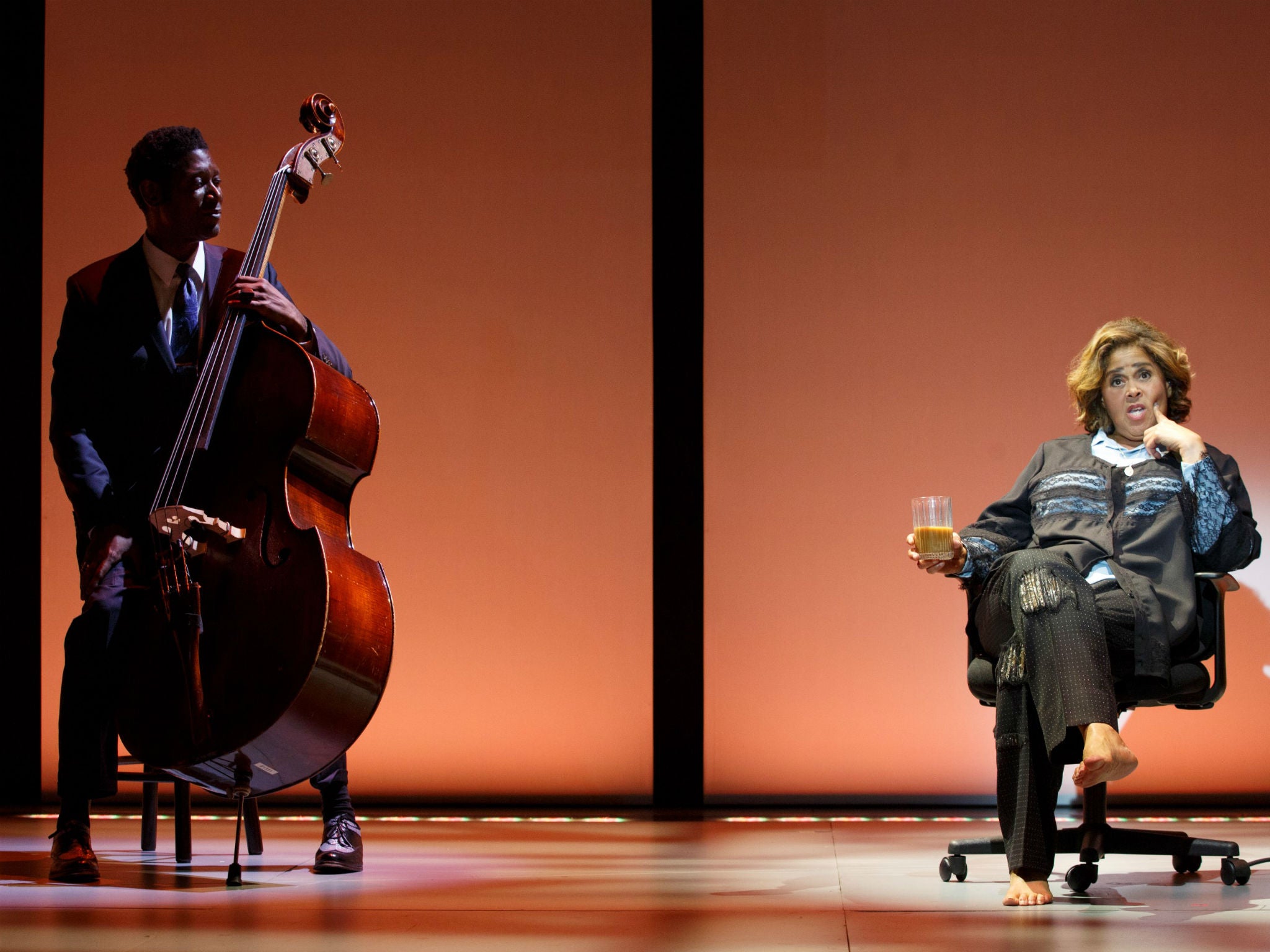Notes from the Field, Royal Court, London, review: Anna Deavere Smith's powerful expose of America's criminal justice system
The ‘West Wing’ actress and verbatim theatre pioneer spoke to more than 250 people for this harrowing show about the US's school-to-prison pipeline

Your support helps us to tell the story
From reproductive rights to climate change to Big Tech, The Independent is on the ground when the story is developing. Whether it's investigating the financials of Elon Musk's pro-Trump PAC or producing our latest documentary, 'The A Word', which shines a light on the American women fighting for reproductive rights, we know how important it is to parse out the facts from the messaging.
At such a critical moment in US history, we need reporters on the ground. Your donation allows us to keep sending journalists to speak to both sides of the story.
The Independent is trusted by Americans across the entire political spectrum. And unlike many other quality news outlets, we choose not to lock Americans out of our reporting and analysis with paywalls. We believe quality journalism should be available to everyone, paid for by those who can afford it.
Your support makes all the difference.★★★★☆
This harrowing and rousing solo show is the result of 250 interviews conducted during the Obama administration by the verbatim theatre pioneer and West Wing actor Anna Deavere Smith.
She last appeared in London 25 years ago with Fires in the Mirror, her one-person docu-collage about the 1991 Crown Heights race riots. The Gate Theatre in Notting Hill recently revived her Twilight: Los Angeles, 1992, a tapestry of testimonies gathered in the wake of Rodney King’s televised beating.
This latest show is not set around a single incendiary incident. Rather, it is a powerful, patiently assembled expose of the catastrophic inequities and iniquities of America’s criminal justice system.
We hear from 17 people caught up in what is termed the “the school-to-prison pipeline”. From policy professionals to people on the street, from a Native American fisherman to a Finnish expert in teacher-training: all are played by Smith, shape-shifter extraordinaire, who makes us vividly conscious of their distinct personalities, down to the tiniest of verbal tics. It’s a tribute to how intently she has listened.
The show begins with Sherrilyn Ifill, the president and director-counsel of the NAACP Legal Defence and Educational Fund. She sets the agenda for what follows in noting how deprivation has been inflamed by disastrous policy decisions. Look at the disinvestment in public education that began as a racist response to school integration, and at the massive reallocation of funds into prisons.
The funnelling process from hopeless situation to another – to which students of colour are particularly vulnerable – looks like no accident.
We then see shocking footage of the infamous police arrest of Freddie Gray in Baltimore in April 2015 and the ensuing public disorder. From the reflective, bullet-point cadences of the NAACP chief, Smith switches to the jerky outrage of Kevin Moore, the young deli worker who videoed the atrocity which resulted in the 25-year-old Gray dying of a severed spine.
“Can you sever 80 per cent of your own spine?” asks Moore, who leaves us in no doubt that it takes “just a glance” for a black man to antagonise the cops.
It’s a point echoed with lethal irony by the pastor who preaches at Freddie’s funeral: “He did something that black men are taught not to do – to look the police in the eye”. The pastor turns a few verses from Luke into a thunderous rallying cry: “No justice. No peace.”
“This is American history, it’s not African American history,” declares Bryan Stevenson, the executive director of an equal justice initiative, making a valuable distinction. Notes from the Field is a scathing, cumulative indictment of a nation that seems to prefer incarcerating its disadvantaged to educating them.
Marcus Shelby, playing his jazz-inflected score on a double-bass, accompanies some of the scenes in Leonard Foglia’s immaculate production. The concluding monologue comes from Congressman John Lewis recalling the Selma march in 1965 and the forgiveness that was later sought from him by a white policeman, too young to have been present. The audience is then invited to join in a chorus of “Amazing Grace”. This is arguably a shade over-conciliatory, given what has gone before. Otherwise, a remarkably stirring show.
Until 23 June (royalcourttheatre.com)
Join our commenting forum
Join thought-provoking conversations, follow other Independent readers and see their replies
Comments